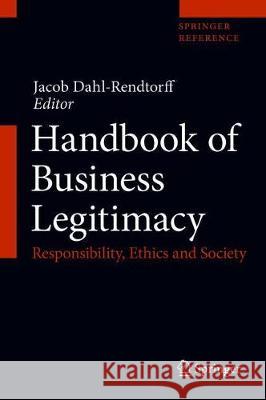Handbook of Business Legitimacy: Responsibility, Ethics and Society » książka
topmenu
Handbook of Business Legitimacy: Responsibility, Ethics and Society
ISBN-13: 9783030146214 / Angielski / Twarda / 2020 / 1761 str.
Kategorie:
Kategorie BISAC:
Wydawca:
Springer
Język:
Angielski
ISBN-13:
9783030146214
Rok wydania:
2020
Wydanie:
2020
Ilość stron:
1761
Waga:
3.96 kg
Wymiary:
24.13 x 19.3 x 9.91
Oprawa:
Twarda
Wolumenów:
02











